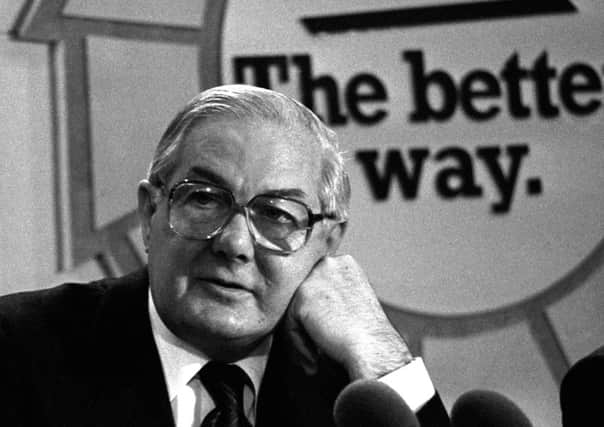The Week That Was: Jan 16 - 22, 1979


For the first time, they refused lorries entry to Goole’s flour mills which supplied most of the region’s large bakers. The mills and their drivers were not involved in the pay dispute.
All animal feed mills were closed because stocks had run out and pickets were refusing to allow raw materials to be brought in, in defiance of their own union.
Advertisement
Hide AdAdvertisement
Hide AdThe situation in many of the area’s intensive pig and poultry rearing units was said to be critical, but leaders of the Transport and General Workers’ Union later decided to allow animal feed to pass unhindered.
James Callaghan’s Labour government was considering calling a state of emergency, which would give ministers wide-ranging powers to take action to maintain essential services and supplies, including the requisitioning of vehicles.
Meanwhile a code of practice on picketing, a new deal for the low-paid and tighter price controls starting immediately were among a package of measures proposed by the PM in an attempt to tackle the country’s continuing industrial crisis.
The ‘peace package’ was presented to the Commons in response to Opposition leader Margaret Thatcher’s call for a reduction in the power of the trade unions.
Advertisement
Hide AdAdvertisement
Hide AdNew figures revealed that Britain’s farmers produced more food in the last year than ever before but got 3.5 per cent less money for it, and their incomes fell in real terms by 11 per cent.
The Annual Review of Agriculture said net output, reflecting the contribution made by farming to the national economy, was valued at £2,537m. It was thought that the high output from the country’s farms was largely due to good weather, which produced a record cereal harvest of 17.4m tonnes. There was also a high output of milk and some other crops.
The slump in incomes was explained by the dramatic fall in potato prices, lower poultry returns and increases in costs.
On The Yorkshire Post’s foreign pages, it was reported that the Shah of Iran, Mohammed Reza Pahlevi, fled Tehran and flew into Egypt this week after months of unrest and violence against his repressive regime.
Advertisement
Hide AdAdvertisement
Hide AdHe and his wife Empress Farah were asked to leave by Dr Shapur Bahktiar, whom the Shah had appointed Prime Minister only weeks previously.
A face-saving announcement declared that the departure was a “vacation” during which the Shah would be receiving medical treatment in Egypt. The couple’s three youngest children left separately, on a plane bound for the US.
Opposition to the Shah had become concentrated behind spiritual leader Ayatollah Ruhollah Khomeini, who orchestrated clashes against government forces from exile in France.
Martial law was declared in Iran in the previous September, after which a strike by oil workers led to riots and rallies across the country.
Advertisement
Hide AdAdvertisement
Hide AdWestern governments including the UK, US and West Germany continued to support the Shah. While many Iranians rejoiced at his departure, the country slid into further chaos, with many deaths in clashes with the Army.
Fans of film star John Wayne were relieved to hear that the 71-year-old was sitting up in bed and cracking jokes after two-hour gall bladder surgery turned into a nine-hour operation in which his stomach was removed owing to the discovery of a malignant tumour.